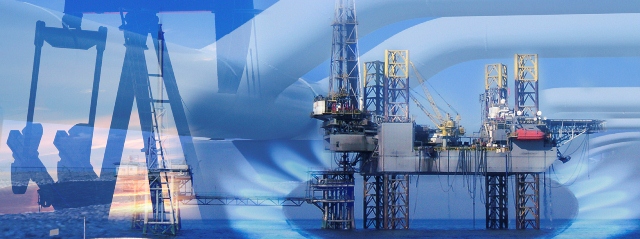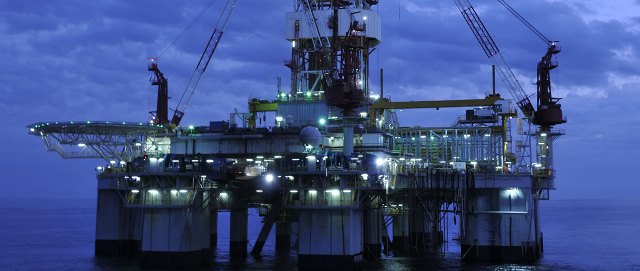The EPC (Engineering, Procurement & Construction) set-up provides developers and owners with a single point of contact throughout the project execution phase and reduces financial risks. EPC projects are multidisciplinary in nature, and efficient construction management coupled with a continual focus on HSEQ are key success factors.

Largest EPC companies
World’s largest Engineering and Construction Companies:
EPC companies provide complete engineer-procure-construct (EPC) services through strategic alliances with leading engineering, materials management, and construction companies, and offers all aspects of turnkey construction including project management, engineering, materials procurement, construction, right-of-way acquisition, landowner management, permitting and environmental services.
Check out this list of the top 10 largest and best EPC companies around the world in 2019.
- Petrofac – London
- Saipem – Nigerian
- Hyundai Heavy Industries – South Korea
- SAMSUNG Engineering – South Korea
- Technip – France
- WorleyParsons – Australia
- CB&I – Chicago, Illinois, USA
- SK Engineering & Construction – South Korea
- NPCC – Abu Dhabi (UAE)
- TATA Projects LTD – Ahmedabad, Gujarat

List of EPC companies in power sector
The oil and gas sector has seen some drastic changes in the past year, and so have engineering, procurement and construction (EPC) contractors followed suit to cater to an ever-changing industry. As the region’s national oil companies have moved to integrate vertically and boost their downstream portfolios, so, too have EPC contractors.
EPC contractors are shifting to adapt to an environment that requires they be more ambitious, and more versatile while maintaining the financial discipline to suit the changing needs of the region’s oil and gas companies.
Some of the region’s major deals this year have been in the downstream segment, but upstream has seen an incredible amount of traction as well, with giants like Saudi Aramco looking to invest billions of dollars into redeveloping aging assets. Its Long-Term Agreement program has kept some EPC companies busy and their project pipelines full.
There are some surprise movers among the list, but the top tier has kept many familiar faces among its ranks, all of whom will be recognizable from headlines announcing their major wins in the past year. Those that rose up to have generally seen more activity or investment in the region.
- Larsen & Toubro Hydrocarbon Engineering
- Petrofac
- McDermott
- Wood
- SNC-Lavalin
- National Petroleum Construction Company
- Saipem
- WorleyParsons
- Technip FMC
- Galfar Engineering & Contracting

Top EPC companies in oil and gas sector
For the last few years, the competition among the major engineering, procurement, and construction (EPC) companies related to the refining and petrochemicals manufacturing sector in the Middle East is at the top level since there are only a limited number of large-scale projects in the region and all the major global players are there from around the world.
As a result of the rebalanced low oil prices, the downstream EPC companies in the region are facing project complexity, escalating costs and enhanced risk. The real challenge for these EPC companies operating in the region is the cost competition among themselves. Operators are cutting down capital spending budgets and there are fewer contracts in the pipeline.
We have enlisted and ranked the 2019 list of Top 30 EPC Contractors primarily based on the value and volume of the projects that EPC companies have won in the Middle East region from the downstream industry.
In many cases, the project costs are undisclosed in the region. In those cases, we have considered the impact of the project on the region’s industry, people and economy. We have also considered other factors like 2017 and 2018 revenues, projects completed earlier, CSR initiatives, compliance with ethical business practices, etc. The rankings in this year’s list have changed considerably, compared to the last year.
- Samsung engineering – South Korea
- Technip – France
- Petrofac – UK
- Técnicas Reunidas
- SNC Lavalin
- SK Engineering & construction co
- Saipem
- Daewoo engineering & construction
- Daelim industrial co
- Maire Tecnimont

What is EPC company
EPC indicates a contractor is responsible for the Engineering, procurement, and construction of a particular facility/work awarded to him
Example: A hotel project awarded on a turnkey basis means the contractor is responsible to complete all activities leading to the final operation level (handing over to the operation team). You can’t divide this project into separate activities like Civil, MEP, etc. and award on a turnkey basis to different contractors. Whereas, on an EPC, you can award only MEP works on EPC or a Sewage Treatment Plant (STP) work on EPC.

EPC company means
An EPC Contract the Client / Employer has no responsibility to track the work of other Sub-contractors under the main Contractor; however, in Turnkey Contract the Contract is made in such a way that the Client / Employer makes provisions in the Contract with its main Contractor that in the event of non -performance of duties by the Main Contractor the Client / Employer can terminate the main Contractor’s Contract and give it to the Sub-contractor on the rates as applicable between the Contractor and Sub-contractor and these happen to any degree of level.
In other words, the rights of the Client / Employer in Turnkey are more than in EPC.
Turnkey Construction contract
A Turnkey Contract is one under which the contractor is responsible for both the design and construction of a facility. The basic concept is that in a Turnkey Contract the contractor shall provide the works ready for use at the agreed price and by a fixed date.
The reality is that the employer wants to be and should be actively involved in the project at all stages. The term is used more or less synonymously with expressions as “package contract”, “design and build” or “design constructor”.
Turnkey contracts often seek to regulate in great detail all issues which possibly might arise between the parties. The main clauses of a turnkey contract are the design of the project, the construction site, time for completion, price and payments, performance guarantees and the law governing the contract.
EPC Construction
The EPC industry is one that is multifaceted and so positively complex that it often keeps executives on their toes. For instance, when building, designing or financing a construction project, it is vital to maintain oversight and have cash flow audits throughout the process.
The acquisition of invoices at the correct time is an essential part of this process as it eases one’s need to meet pressing demands at a time when dealing with a multitude of issues simultaneously. EPC companies have since employed an array of project management techniques, but this is yet to prove valuable with regards to the way they run their business operations.

Engineering procurement construction
Effective Project management can be a make it or break it success factor for Engineering and Construction firms.
EPC companies are often running multi-disciplinary engineering issues such as hosting multiple employees, hundreds of different firms and a number of subcontractors simultaneously.
As such, EPC firms are dexterous entities that require proper time and budgetary allocations throughout the supply chain to seal all possible money-leaking loopholes.

EPC provider
Failure to keep such projects money tight would lead to dismal performances. Some of the ways such money-tightness can be achieved are through the tracking of staff certifications, complying with bank requirements, observing worker safety protocols, and keeping tabs on government regulations such as those governing Public-Private Partnerships.
Construction management books
International Construction Contract Law will be invaluable to those operating in the international construction market and undoubtedly will become a practitioner’s go-to guide on the subject.
“Dr Klee’s book should have broad appeal in the construction industry … The description of key concepts is thorough and the snapshots of relevant common law principles clearly articulated. Dr Klee cleverly connects the legal and the practical there by bringing the performance and administration of construction contracts out of the theoretical realm into the real world. … Dr Klee’s discussion, observations and inquiry into what the future holds for international construction contracts is thought provoking and, pleasingly, interesting and enjoyable reading”
“Given the increasing globalization of commerce it is essential that persons setting up the transactions understand the legal means at their disposal. … This work makes an important and original contribution to the knowledge of those dealing with these transactions. … It will be of immense use to consulting engineers, lawyers, clients, developers, contractors and construction managers worldwide and is highly recommended”
International Construction Contracts Law
International Construction Contracts
Delay Clauses in International Construction Contracts : Many large construction projects, such as those in the Middle East or Asia Pacific, are international in scope with a range of contractors and subcontractors signing contracts for delivery of specified work or services.
The contractual situation in these instances may be complex and potentially includes a range of standard and bespoke contractual arrangements. In addition, the parties to these contracts may be based in different parts of the world, and are often working to different legal systems and understandings. This can lead to confusion in the understanding, interpretation, and execution of a given contract.
International Construction Contracts provides concise and practical guidance to those involved in the negotiation and management of international construction and engineering contracts. It sets out in clear, straightforward language the main features of construction contracts and international dispute resolution procedures. It ensures the reader is aware of the issues that might arise on the contractual side of their project so that they may better protect their party’s interests.
Understanding and Negotiating EPC Contracts
In Understanding and Negotiating EPC Contracts, Volume 1, Howard M. Steinberg presents a practical and comprehensive guide to understanding virtually every aspect of engineering, procurement and construction (EPC) contracts for infrastructure projects.
The 25 chapters in Volume 1 are supplemented with real-life examples and court decisions and offer tactical advice for anyone who must negotiate or understand EPC contracts in connection with the implementation, financing or operation of infrastructure projects.
Emphasizing current market practices and strategic options for risk sharing, the book contains a narrative explanation of the underpinning of all of the issues involved in EPC contracting.
Exhaustive in scope, it clarifies the fundamental commercial principles and pitfalls of “turnkey” contracting for all types of capital investments ranging from electrical and thermal power generation (including combined heat and power, nuclear, wind, solar, natural gas and coal) to refining, to chemical processing to LNG liquefaction and re-gasification to high-speed rail, bridging, tunneling and road building. Providing clear and thorough analyses of the issues and challenges, this volume will be of great value to all those involved in complex construction projects.
What do you mean by EPC companies?
EPC stands for Engineering, Procurement, Construction and is a prominent form of contracting agreement in the construction industry. Normally the EPC Contractor has to execute and deliver the project within an agreed time and budget, commonly known as a Lump Sum Turn Key (LSTK) Contract.
Essentially an EPC project is the same as a turnkey project. An EPC contract encompasses the E (Engineering/Design), P (Procurement) and the C (Construction) which is the entire project from concept to commissioning (turnkey). However, EPC is a very broad and sometimes wrongly used term.
The fundamental difference is the role of the EPC or EPCM contractor. In an EPC contract, the EPC contractor develops the project from commencement to final completion. This is why EPC contracts are often referred to as “turnkey” projects. For this reason, an EPC contract is often a fixed price contract or an all-encompassing lump sum contract. Any shortfall of costs is a risk that rests with the EPC contractor, making cost control their number one priority.
In contrast to the EPC model, the EPCM contractor is not directly involved in the building and construction of the project, but is rather responsible for the detailed design and overall management of the project, on behalf of the owner or principal.
EPC stands for Engineering, Procurement, and Construction. These companies are hired by Oil & Gas companies for long-term projects that need to be completed by skilled individuals.
The most read

EPC Construction Company
EPC COMPANY: what is EPC company? EPC services company, EPC construction company, EPC company means, EPCM Contract, Top EPC Companies in USA

Mining equipment manufacturers
Construction and mining equipment cover a variety of machinery such as hydraulic excavators, wheel loaders, backhoe loaders, etc.
